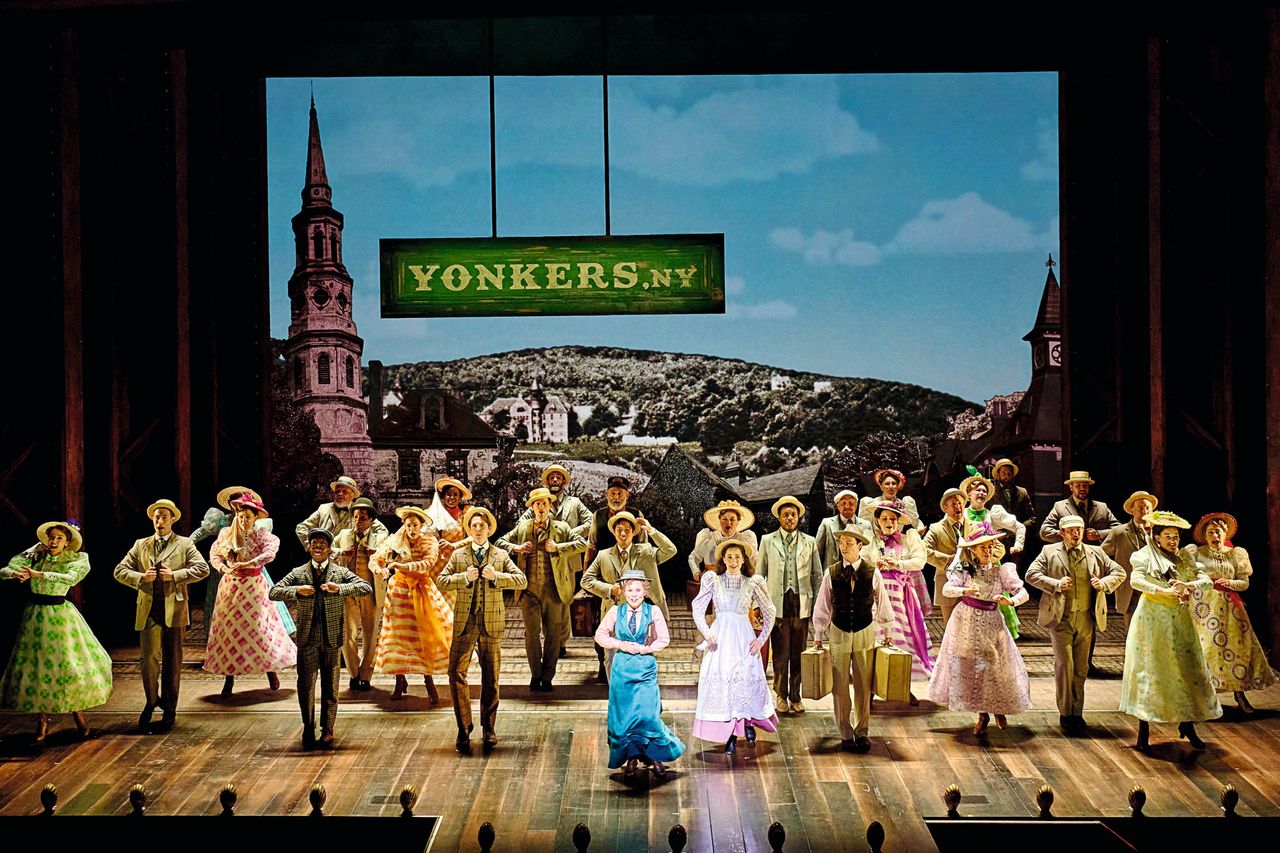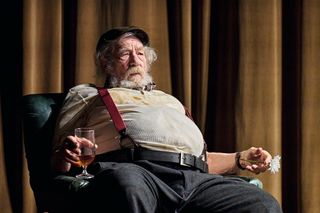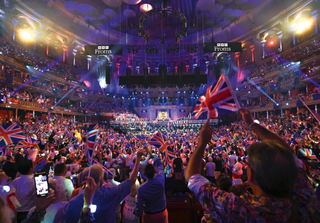Highlights, delights and lowlights: The best (and worst) shows of 2024
Plus, what the famed theatre critic recommends going to see in January.

In the spirit of the Oscars and the Oliviers, I had thought of dubbing my awards for the best and worst of 2024 ‘The Billies’, but I soon realised they might then be called ‘the silly Billies’, so I quickly abandoned that idea. In a year that has shown the theatre slowly recovering its nerve after the Covid crisis and which has witnessed some crucial handovers of power in London and the regions, here are my own idiosyncratic accolades.
Best new play
Mark Rosenblatt’s Giant at the Royal Court, which dealt specifically with the accusations of anti-Semitism against Roald Dahl and, more generally, with the question of whether we should allow our dislike of an artist’s opinions to influence our appreciation, was a brilliant play with a fine performance by John Lithgow as Dahl. The good news is that the production transfers to the Harold Pinter in the new year.
Best revival
Noël Coward’s Suite In Three Keys at the Orange Tree Richmond gave me more pleasure than any other theatre this year. This trilogy was Coward’s final work for the theatre, but the highlight was A Song at Twilight in which he entered a plea for sexual tolerance by showing a testy writer, finely played by Stephen Boxer, forced to confront his past.
Best and worst Shakespeare productions
Together with the current Richmond Twelfth Night, I would place the RSC’s The Merry Wives of Windsor as one of my delights of the year. This often underrated play was updated to the time of the football Euros and caught perfectly its mix of mild xenophobia, bourgeois complacency and female wiliness, with John Hodgkinson as a superbly disruptive Falstaff.
Sign up for the Country Life Newsletter
Exquisite houses, the beauty of Nature, and how to get the most from your life, straight to your inbox.
The worst Bard show of the year was a production of Antony & Cleopatra at Shakespeare’s Globe, which failed not so much because the Egyptian characters used sign language as because there seemed no spark of erotic tension between its lead actors. Here’s the odd thing, however: both my best and worst selections were directed by Blanche McIntyre.
Best actors

Once again, it is Falstaff to the fore, with Sir Ian McKellen’s performance as the fat knight in Player Kings — a conflation of the two parts of Henry IV — taking the honours. As do all great actors, Sir Ian gave us a fresh insight: that, far from dwindling as the play proceeds, Falstaff actually acquires a new vitality after the Battle of Shrewsbury by posing as a decorated military hero. It was only a pity that an accident prevented Sir Ian completing the run.
There is much competition among actresses, but Patricia Clarkson’s long-suffering Mary Tyrone in Long Day’s Journey Into Night and Lesley Manville’s ardent Jocasta in the current Oedipus are eclipsed by the memory of Dame Imelda Staunton in Hello, Dolly!: a perfect incarnation of a twinkling, bright-eyed busy body hungry for a second chance in life.
Most disappointing performance by a great actor
I yield to no one in my admiration for Sir Mark Rylance — you only have to see him as Thomas Cromwell in the BBC’s The Mirror and the Light — but his Captain Boyle in Juno and the Paycock was badly misjudged. Instead of sturdy bombast, we got whimsical Chaplinesque capering that seemed to upstage the rest of the cast.
Most promising newcomers
The acting palm goes to Imogen Elliott, who made her stage debut in John van Druten’s The Voice of the Turtle at the Jermyn Street Theatre. As a young New Yorker who gives her spare bed to an army sergeant in wartime, Miss Elliott conveyed the character’s mix of vibrant charm and insecurity. For writing, I would single out Emma Hemingford, whose play Foreverland at Southwark Playhouse movingly explored the daunting prospect of eternal life and made a strong case for mortality.
Curse of the year
Intrusive technology, whether it be sets that beg for our applause as in Stranger Things: The First Shadow at the Phoenix or sound design that underscores the action with a persistent hum, as in Coriolanus at the National Theatre.
Surprise of the year
The revival of Samuel Beckett’s Waiting for Godot at the Theatre Royal Haymarket. I thought I had supped full with Godots, but, watching Ben Whishaw and Lucian Msamati, I found myself on the edge of my seat hoping for once that the mysterious title figure might actually turn up.

What’s on over Christmas
Who is the main character in Twelfth Night? It can be any one of five, but in Tom Littler’s glorious revival at the Orange Tree, Richmond (my theatre of the year), it is undoubtedly Feste. As played by Stefan Bednarczyk, he is less a jester than an urbane entertainer who sits centre stage at a piano and comments on the action. In this most musical of Shakespeare’s plays, he becomes the pivotal figure and invokes a variety of composers, from J. S. Bach to Noël Coward.
Mr Littler’s production is set squarely in a mid-1940s world that makes total sense. Dorothea Myer-Bennett’s Olivia obsessively mourns a brother lost in the war without sacrificing her sensuality. Clive Francis’s Sir Toby is a military veteran more dipso than DSO. Oliver Ford Davies’s Malvolio becomes a bowler-hatted butler who clearly pines for a pre-war world of rigid class distinctions. Even the idea that Patricia Allison’s Viola has been separated from Tyler-Jo Richardson’s Sebastian — for once, the twins look genuinely alike — seems plausible in a world of enforced partings.
'The key to any Twelfth Night is finding the right balance between mirth and melancholy, but here both are given full due'
The key to any Twelfth Night is finding the right balance between mirth and melancholy, but here both are given full due. The big comic scenes come off excellently with the watching actors, including Jane Asher’s sprightly Maria, hiding among the audience during Malvolio’s letter-reading scene. The play’s stress on human transience is ever present through Mr Bednarczyk’s ability to switch in a second from a cheerful to a sad song. It is also a sign of the production’s success that Mr Littler respects our intelligence by allowing us to make our own deductions about the play’s erotic complexity: Olivia’s love for Viola and Antonio’s for Sebastian are visible without being hammered home.
The exact opposite is true in Max Webster’s production of The Importance of Being Earnest at the National’s Lyttelton Theatre. Mr Webster is keen to point out that Wilde’s characters — who would have guessed it? — are predominantly bisexual. Ncuti Gatwa’s Algernon is first seen dancing atop a piano in a pink frock; Hugh Skinner’s Jack Worthing is a head-tossing figure forever archly posing hand on hip. Even Gwendolen and Cecily show a more than usual affection for each other in this flamboyant version. In short, the subtext of Wilde’s play is brought into the open and spelt out in capital letters a mile high.
I can’t deny that it is all done with great energy and that Rae Smith’s sets and costumes are a gaudy delight, but it is significant that much the best performance — that of Sharon D. Clarke as Lady Bracknell — is the one that sticks closest to Wilde’s intentions. On her first imperious entry, in a striking yellow hat, she gives Mr Worthing a look of withering disdain. The famous ‘a handbag’ line is convincingly delivered with quiet incredulity.
This Lady Bracknell is also sharp enough to view Cecily with glowing enthusiasm once she sees her financial possibilities. High-chinned, poker-backed and stately as a galleon, Miss Clarke is simply magnificent and is the main reason — arguably the only one — for seeing this over-the-top production.
‘Twelfth Night’ until January 25; ‘The Importance of Being Earnest’ until January 25
Michael Billington is Country Life's theatre critic. He was previously the chief drama critic of The Guardian from 1971 to 2019

Henry Wood: The man who made The Proms
As the 2024 Prroms get under way, we take a look at the man who began this great British summer

Curious Questions: Was music's famous 'Lady of the Nightingales' nothing more than a hoaxer?
Beatrice Harrison, aka ‘The Lady of the Nightingales’, charmed King and country with her garden duets alongside the nightingales singing
-
 A quaint village hall in County Durham has been turned in to a truly extraordinary contemporary home
A quaint village hall in County Durham has been turned in to a truly extraordinary contemporary homeThe Village Hall in Shotley Bridge is a masterful conversion of a much-loved village amenity.
By James Fisher Published
-
 Dawn Chorus: The perfect job for incurable romantics, Britain's rudest roads, woodland workshops and spring in Cornwall
Dawn Chorus: The perfect job for incurable romantics, Britain's rudest roads, woodland workshops and spring in CornwallLiving on a near-deserted island, and getting paid for the privilege? No wonder tens of thousands of people were keen.
By Toby Keel Published